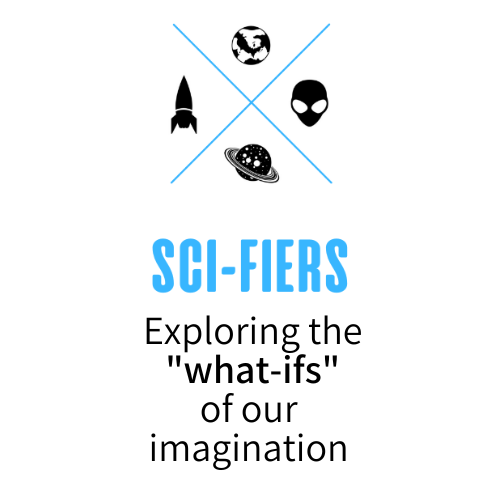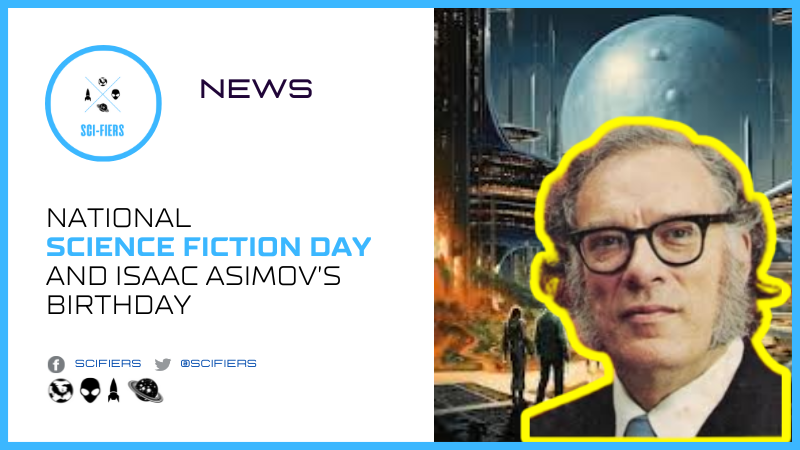National Science Fiction Day is more than just a celebration of a genre; it’s a tribute to the boundless creativity and vision that drive human progress. By exploring the unknown, challenging the status quo, and dreaming of what could be, science fiction reminds us of our infinite potential.
January 2nd marks a special occasion for fans of futuristic worlds, alien civilizations, and thought-provoking narratives: National Science Fiction Day. This day is dedicated to honoring the works from the science fiction genre, its visionary creators, and its influence across various media, including literature, film, television, and beyond. Whether you’re an avid fan of the classics or a curious newcomer to the genre, National Science Fiction Day offers an opportunity to dive deep into the worlds that have redefined the boundaries of human imagination.
Why January 2nd?
The choice of January 2nd for National Science Fiction Day is no coincidence. It coincides with the birthday of Isaac Asimov (1920–1992), one of the most prolific and influential science fiction authors of all time. Asimov’s works, including the Foundation series and the Robot series, have shaped the genre and inspired countless readers, writers, and scientists. His contributions are a testament to how science fiction can serve as a bridge between speculative storytelling and scientific inquiry.
What is Science Fiction?
Science fiction explores speculative ideas grounded in scientific principles or imaginative projections of future technologies, societies, and events. From space exploration to artificial intelligence, from dystopian futures to utopian dreams, science fiction offers authors and readers to examine humanity’s hopes, fears, and aspirations.
More than mere escapism, science fiction encourages critical thinking, innovation, and a deeper understanding of the world around us. By imagining alternate realities, the genre challenges our perceptions of what is possible and provides a playground for exploring ethical, philosophical, and existential questions.
The Evolution of Science Fiction – A Brief History
The roots of science fiction stretch back centuries, with early works like Mary Shelley’s Frankenstein (1818) laying the foundation for the genre. Over time, science fiction evolved to reflect the cultural and technological shifts of each era.
The Golden Age (1930s–1950s)
The mid-20th century, often referred to as the “Golden Age of Science Fiction,” saw the rise of influential authors like Asimov, Arthur C. Clarke, and Ray Bradbury. These writers explored themes of space exploration, robotics, and the consequences of technological advancement.
The New Wave (1960s–1970s)
The New Wave movement brought a more experimental and literary approach to science fiction. Authors like Ursula K. Le Guin and Philip K. Dick delved into complex psychological and sociopolitical themes, challenging traditional genre boundaries.
Contemporary Science Fiction (1980s–Present)
Today, science fiction continues to thrive, embracing diverse voices and perspectives. From Afrofuturism to cli-fi (climate fiction), the genre remains a dynamic space for innovation and cultural commentary.
The Impact of Science Fiction
Science fiction’s influence extends far beyond entertainment. It has inspired technological advancements, shaped public perceptions of science, and provided a platform for exploring pressing global issues.
Inspiring Innovation
Many technological breakthroughs have been influenced by ideas first imagined in science fiction. From mobile phones inspired by Star Trek communicators to AI technologies reminiscent of HAL 9000 from 2001: A Space Odyssey, the genre has played a pivotal role in shaping the future.
Addressing Social Issues
Science fiction often serves as a mirror for society, tackling issues such as racism, gender inequality, and environmental degradation. Works like The Handmaid’s Tale and Black Mirror invite viewers to reflect on the consequences of societal choices.
Encouraging Scientific Curiosity
By envisioning the possibilities of science and technology, science fiction inspires curiosity and exploration. Figures like Carl Sagan and Neil deGrasse Tyson have credited the genre with sparking their interest in astronomy and science communication.
The Future of Science Fiction
As we explore the challenges and opportunities of the 21st century, science fiction remains a vital tool for imagining and shaping our collective future. Emerging technologies such as artificial intelligence, virtual reality, and space exploration offer new frontiers for storytelling. Moreover, the genre’s increasing emphasis on inclusivity ensures that diverse voices and experiences will continue to enrich its narratives.
So, whether you’re curling up with a classic novel, watching a beloved film, or crafting your own speculative story, take a moment to appreciate the wonder and wisdom that science fiction brings to our lives.
Happy National Science Fiction Day!

